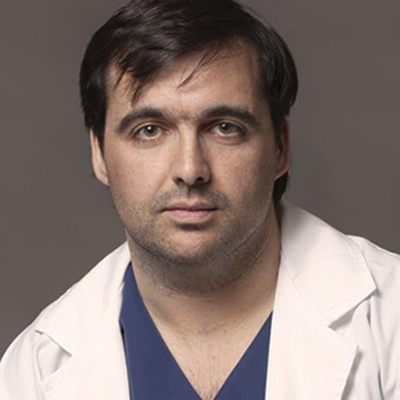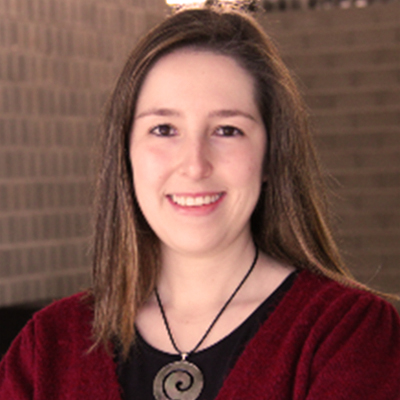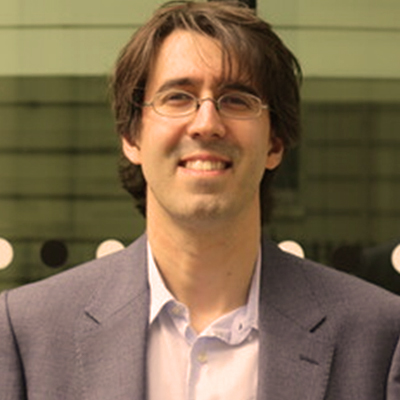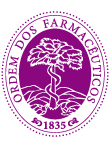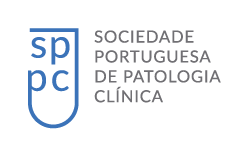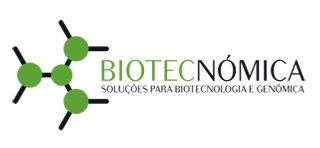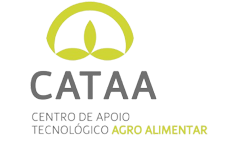Alexandre Almeida
Short biography
Alexandre Almeida is an MRC Career Development Fellow leading the Microbiome Function and Diversity group at the University of Cambridge. His team focuses on understanding the role that the uncultured microbiome plays in human health and disease. He obtained his PhD in Microbiology at the Institut Pasteur in Paris, studying the opportunistic pathogen group B Streptococcus.
After his PhD, he relocated to Cambridge with an EBI-Sanger Postdoctoral Fellowship to expand his research to metagenomic studies of the human gut microbiome. Using computational genomic methods, his work contributed to the discovery of thousands of uncultivated bacterial species in the human gut microbiome, more than tripling the number of gut-associated species previously known.
Gil Faria
Short biography
Gil Faria graduated from the Faculty of Medicine of the University of Porto (FMUP), where he then completed a Master’s degree in Medicine and Oncology. In 2014, he obtained his PhD in Metabolic Surgery from FMUP, and later earned a Master’s degree in Public Health from Harvard Medical School of Public Health (USA).
Professor Faria started as an Assistant Lecturer at FMUP from 2006 to 2017, a period that coincided with his time at the Hospital de São João, where he completed his General Surgery residency. Then, in 2015 he assumed the position of Assistant Professor at ICBAS, a role he carries out alongside his work as a surgeon in the General Surgery Department of the Centro Hospitalar do Porto and other private hospital units.
He was the first Portuguese person to be awarded an annual scholarship by the International Federation for the Surgery of Obesity and Metabolic Disorders (IFSO) and is currently part of the iGo Research Group, under Thematic Line 2 – Clinical and Translational Research, at CINTESIS-FMUP.
Joana Araújo
Short biography
Joana Araújo graduated in Nutritional Sciences from the Faculty of Nutrition and Food Sciences in 2008, completed her Master’s in Public Health in 2010, and her PhD in Public Health in 2016 at the Faculty of Medicine of the University of Porto. From October 2017 to May 2019, she was a Post-Doctoral Fellow in the Department of Nutrition at the Gillings School of Global Public Health, UNC, studying obesity and cardiometabolic health, and causes of unintentional weight loss in adults.
She is currently a Researcher with a PhD at ITR – Laboratory for Integrative and Translational Research in Population Health, where she is part of the Lab for Causes and Prevention of Obesity and its Consequences, funded by the 2nd edition of the Individual Scientific Employment Stimulus (CEEC) from FCT (CEECIND/01271/2018). Her professional interests are in nutritional and obesity epidemiology, with a particular focus on the life-course approach to obesity and cardiometabolic factors.
Joana Ferreira-Gomes
Short biography
Joana Ferreira-Gomes is an Assistant Professor at the Faculty of Medicine of the University of Porto (FMUP) and Researcher of the Integrated Program in Neurobiology of Pain at i3S – Institute for Research and Innovation in Health.
She completed her degree in Microbiology at the University’s School of Biotechnology Católica Portuguesa, and the Masters in Infectious Diseases at Imperial College School of Science, Technology and Medicine, University of London, in 1999 and 2000, respectively.
In 2013, she received her PhD in Neurosciences with the thesis “Neurobiological mechanisms of pain associated with osteoarthritis.“ from FMUP. Then, in 2021, she graduated in Medicine from the same faculty. Currently, she focuses her research on studying the impact of the microbiome on the gut-brain axis.
Joana Gaifem
Short biography
Joana Gaifem is a biologist focusing on mucosal immunology, microbiome, and glycosylation. She holds a degree in Biology (2009) from the Faculty of Sciences of the University of Porto, a Master’s in Environmental Contamination and Toxicology (2011) from ICBAS, University of Porto, and a PhD in Ageing and Chronic Diseases (2019) from the School of Medicine, University of Minho. During her PhD, her work focused on deciphering the microbiome and metabolic factors contributing to protection or susceptibility in Inflammatory Bowel Disease (IBD).
Joana joined i3S in 2019 as a post-doctoral researcher in the Immunology, Cancer & Glycomedicine group (funded by FCT-CEEC2020). Her research primarily centers on elucidating the impact of mucosal glycosylation alterations on the gut microbiota and immune response. Additionally, she explores how precision nutrition can act as a preventive approach to avoid the transition from health to inflammation. In 2022, Joana received an ESCMID research grant to explore the impact of glycans on gut microbiota and IBD. In 2023, she was awarded an ECCO Grant to investigate whether a glycan-based diet can help regulate the immune system and gut microbiome. Recently, Joana has been studying predictive serum markers of Crohn’s Disease, revealing a new potential for serum autoantibodies in the health-to-disease transition. Her ultimate goal is to develop strategies for predicting and preventing IBD.
João Pedro de Magalhães
Short biography
João Pedro de Magalhães is graduated in Microbiology from Escola Superior de Biotecnologia in his hometown of Porto, Portugal. His first experience in a research environment was as an intern (1998-1999) in the UnIGENe research group at the Institute for Molecular and Cell Biology in Porto, where he worked on Machado-Joseph disease, a neurological disorder.
As a doctoral fellow, he pursued his dream of unravelling the mechanisms of ageing by joining the Ageing and Stress Group at the University of Namur in Belgium. With the late Olivier Toussaint as his advisor, his work from 1999 to 2004 spanned molecular mechanisms of celular senescence and responses to oxidative stress, evolutionary models of ageing, and analyses of gene networks.
Fascinated by the genome and by the opportunities its sequencing opened, he then did a postdoc from 2004 to 2008 with genomics pioneer George Church at Harvard Medical School in Boston, USA. Succintly, they developed high-throghput approaches for studying ageing, including computational tools and databases, statistical models of mortality, methods for cell-based RNAi screens, and comparative genomics methods for investigating the evolution of longevity.
In 2018, Pedro joined the University of Liverpool to establish his own group on genomic approaches to ageing. In 2022, he was recruited to the University of Birmingham to take on the post of Chair of Molecular Biogerontology. They are world-leaders in employing genomics and bioinformatics to study ageing with pioneering work in studying gene networks of ageing and in sequencing and analyzing genomes from long-lived species.
Juan P. Arrebola
University of Granada
Short biography
Juan Pedro Arrebola is an Associate Professor at the University of Granada and a researcher at the Biosanitary Research Institute of Granada. His career has focused on environmental epidemiology, particularly the impacts of long-term exposure to environmental chemical pollutants (e.g., plastics, pesticides, etc.) on the development of cardiometabolic conditions. He has a special interest in biomonitoring studies to identify potential subclinical biomarkers of effect, including oxidative stress, hormonal unbalance or inflammation. Juan P. Arrebola has been involved in several research projects and consortia at regional, national, and international levels, including high-impact initiatives such as the European HBM4EU project, PARC, the INMA (Environment and Childhood) Study, MCC-SPAIN, and the Biomedical Research Consortium of Epidemiology and Public Health.
Marta Selma-Royo
Short biography
Marta Selma-Royo got her PhD in Biotechnology from the Polytechnic University of Valencia (UPV) in 2020. Her PhD project was conducted at the Institute of Agrochemistry and Food Technology (IATA), part of the Spanish National Research Council (CSIC), in the group of Prof. M Carmen Collado. The research was focused on the perinatal factors that can affect the maternal and child microbiota and how these could influence the child’s development during the first years of life.
After this period, she worked as a postdoctoral researcher at the Centre for Integrative Biology (CIBIO) at the University of Trento (UNITN). The project was conducted at the Computational Microbiology led by Prof. Nicola Segata. This group is a pioneer in the study of how the alterations in the composition of the human microbiota can be related to prevalent diseases using a computational approach. In Dr. Segata’s group, Marta opened a new line of research in the study of the microbiota, from a combined point of view based on experimental and computational analysis.
Currently, Marta Selma-Royo is developing her research in the Fundació de Recerca Clínic Barcelona – Institut d’Investigacions Biomèdiques August Pi i Sunyer (IDIBAPS). There, she’s focused on the characterization of the maternal microbiota and how it can influence the evolution of the pregnancy and the health of both the mother and the child. The team explores the maternal factors that can be modulated during pregnancy and affect bacterial colonization to develop clinical and/or dietary strategies that improve human health.



